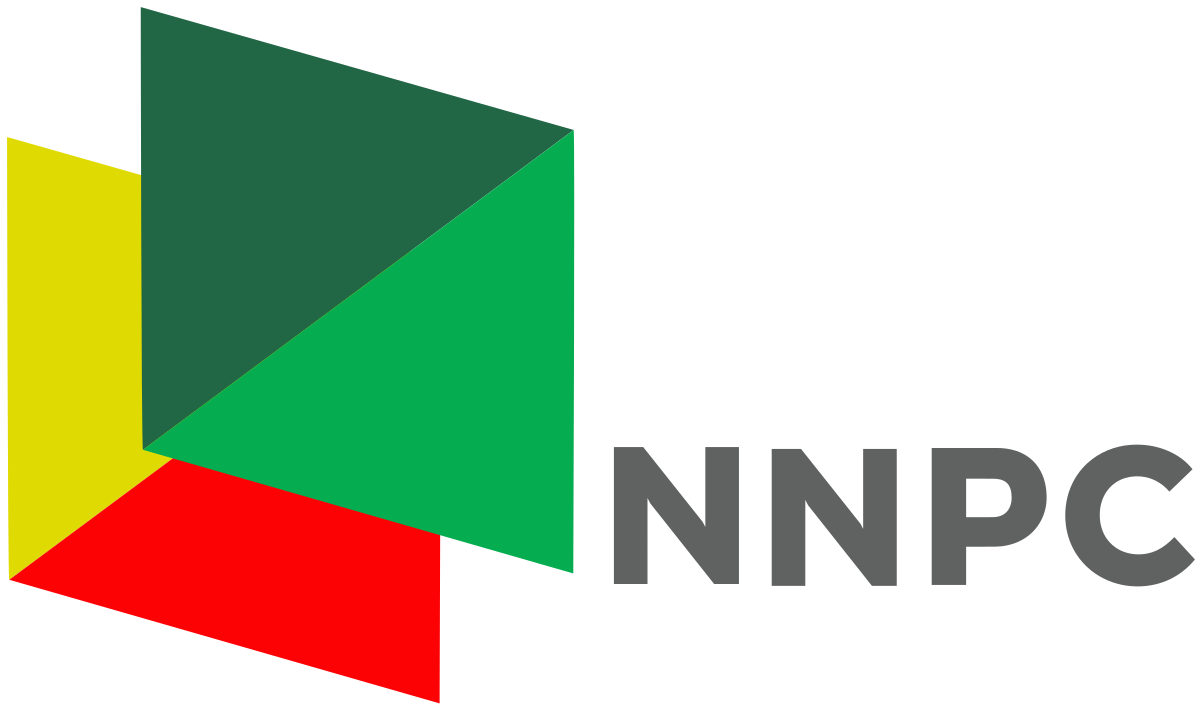Economy
UK Court Grants NNPC $100m Reprieve


By Modupe Gbadeyanka
A Supreme Court in the United Kingdom has granted a reprieve to Nigerian National Petroleum Corporation (NNPC) over a $100million Bank guarantee in a case involving the agency and a service company, IPCO (Nigeria) Limited.
IPCO had referred its claims to arbitration in Nigeria and obtained an Arbitral Award of $154 million in 2004, with annual interest running at 14 percent, leaving NNPC with no option than to promptly challenge the award at the Federal High Court in Lagos.
The reprieve was the latest in the protracted dispute arising from the contract between NNPC and IPCO for the construction of the Bonny Export Terminal (BET) Project in Port Harcourt, Nigeria.
Reacting to the judgment, NNPC Group Managing Director, Dr Maikanti Baru, said he was delighted on the new development, commending the efforts of the legal team that secured judgment in favour of the corporation.
He said no stone would be left unturned to extricate NNPC from encumbrances that may impede the Corporation’s access to hard earned funds which are much needed to execute developmental projects by the various tiers of government in the country.
The development is a significant decision in the history of the case as the English Supreme Court has not only discharged NNPC from the responsibility to sustain the additional security of $100million in favour of IPCO but it also further reiterated the finding of the English Commercial Court and the Court of Appeal that NNPC has a good prima facie case that IPCO procured the Arbitral Award by fraud.
Additionally, the decision of the Supreme Court has clarified conclusively the limits of an enforcing Court’s power to order security as a condition on the right to have a decision of a properly arguable challenge under the New York Convention 1958 and the English Arbitration Act 1996.
Since 2004, IPCO has repeatedly sought to enforce the award in England prior to the conclusion of NNPC’s challenge of the Arbitral Award in Nigeria.
It would be recalled that in 2008, during one of IPCO’s attempts to secure an order for the enforcement of the award in the UK, NNPC claimed it discovered evidence that IPCO had allegedly forged documents relating to the claims and the related arbitration in Nigeria, and as a result, the parties agreed in 2009 to adjourn the enforcement proceedings in England, in order to await the determination of the fraud allegations in Nigeria.
In 2012, IPCO again applied to the English Commercial Court to enforce the award despite the agreement on the adjournment of the enforcement action.
IPCO’s application was however, dismissed on March 14, 2014, holding inter alia that NNPC had made out a good prima facie case of fraud giving NNPC a realistic prospect of proving that the whole award should be set aside. IPCO however appealed to the UK Court of Appeal.
In 2015, the UK Court of Appeal decided that the delays in the Nigerian proceedings required the English Court to lift the adjournment and to decide whether to allow enforcement following a trial of the fraud allegations in the English Court.
Both the Commercial Court and, the Court of Appeal concluded that the fraud allegations against IPCO were made bona fide, that NNPC has a good prima facie case that IPCO practised a fraud on the Arbitral Tribunal, and that NNPC has a realistic prospect on that basis of proving that the whole award should be set aside.
However, the UK Court of Appeal ordered NNPC to provide an additional security of $100 million (NNPC having previously provided security of $80million) as a condition of being entitled to advance a defence that enforcement should be refused because the award had been procured by IPCO’s alleged fraud.
Subsequently, NNPC appealed to the UK Supreme Court to decide whether the English court, as an enforcing court, is empowered to require security for money payable under the award (or any part thereof) from a party resisting enforcement of such award as a condition for being entitled to advance a good and arguable defence that enforcement would be contrary to English public policy because the award was allegedly procured by fraud.
On March 1, 2017, the UK Supreme Court unanimously set aside the Court of Appeal’s Order, allowing NNPC to advance its defence in the English Commercial Court free of any such conditions.
Economy
Flour Mills Supports 2026 Paris International Agricultural Show

By Modupe Gbadeyanka
For the second time, Flour Mills of Nigeria Plc is sponsoring the Paris International Agricultural Show (PIAS) as part of its strategies to fortify its ties with France.
The 2026 PIAS kicked off on February 21 and will end on March 1, with about 607,503 visitors, nearly 4,000 animals, and over 1,000 exhibitors in attendance last year, and this year’s programme has already shown signs of being bigger and better.
The theme for this year’s event is Generations Solution. It is to foster knowledge transfer from younger generations and structure processes through which knowledge can be harnessed to drive technological advancement within the global agricultural sector.
In his address on the inaugural day of the Nigerian Pavilion on February 23, the Managing Director for FMN Agro and Director of Strategic Engagement/Stakeholder Relations, Mr Sadiq Usman, said, “At FMN, our mission is Feeding and Enriching Lives Every Day.
“This is a mandate we have fulfilled through decades of economic shifts, rooted in a culture of deep resilience and constant innovation. We support this pavilion because FMN recognises that the next frontier of global Agribusiness lies in high-level technical exchange.
“We thank the France-Nigeria Business Council (FNBC), the organisers of the PIAS, and our fellow members of the Nigerian Pavilion – Dangote, BUA, Zenith, Access, and our partners at Creativo El Matador and Soilless Farm Lab— we are exceedingly pleased to work to showcase the true face of Nigerian commerce.”
Speaking on the invaluable nature of the relationship between Nigeria and France, and the FMN’s commitment to process and product innovation, Mr John G. Coumantaros, stated, “The France – Nigeria relationship is a valuable partnership built on a shared value agenda that fosters remarkable Intercontinental trade growth.
“Also, as an organisation with over six decades of transformational footprint in Nigeria and progressively across the African Continent, FMN has been unwaveringly committed to product and process innovation.
“Therefore, our continuous partnership with France for the success of the Paris International Agricultural Show further buttresses the thriving relationship between both countries.”
PIAS is one of the most widely attended agricultural shows, with thousands of people from across the world in attendance.
Economy
NEITI Backs Tinubu’s Executive Order 9 on Oil Revenue Remittances

By Adedapo Adesanya
Despite reservations from some quarters, the Nigeria Extractive Industries Transparency Initiative (NEITI) has praised President Bola Tinubu’s Executive Order 9, which mandates direct remittances of all government revenues from tax oil, profit oil, profit gas, and royalty oil under Production Sharing Contracts, profit sharing, and risk service contracts straight to the Federation Account.
Issued on February 13, 2026, the order aims to safeguard oil and gas revenues, curb wasteful spending, and eliminate leakages by requiring operators to pay all entitlements directly into the federation account.
NEITI executive secretary, Musa Sarkin Adar, called it “a bold step in ongoing fiscal reforms to improve financial transparency, strengthen accountability, and mobilise resources for citizens’ development,” noting that the directive aligns with Section 162 of Nigeria’s Constitution.
He noted that for 20 years, NEITI has pushed for all government revenues to flow into the Federation Account transparently, calling the move a win.
For instance, in its 2017 report titled Unremitted Funds, Economic Recovery and Oil Sector Reform, NEITI revealed that over $20 billion in due remittances had not reached the government, fueling fiscal woes and prompting high-level reforms.
Mr Adar described the order as a key milestone in Nigeria’s EITI implementation and urged amendments to align it with these reforms.
He affirmed NEITI’s role in the Petroleum Industry Act (PIA) and pledged close collaboration with stakeholders, anti-corruption bodies, and partners to sustain transparent management of Nigeria’s mineral resources.
Meanwhile, others like the Petroleum and Natural Gas Senior Staff Association of Nigeria (PENGASSAN) have kicked against the order, saying it poses a serious threat to the stability of the oil and gas industry, calling it a “direct attack” on the PIA.
Speaking at the union’s National Executive Council (NEC) meeting in Abuja on Tuesday, PENGASSAN President, Mr Festus Osifo, said provisions of the order, particularly the directive to remit 30 per cent of profit oil from Production Sharing Contracts (PSCs) directly to the Federation Account, could destabilise operations at the Nigerian National Petroleum Company (NNPC) Limited.
Mr Osifo firmly dispelled rumours of imminent protests by the union, despite widespread claims that the controversial executive order threatens the livelihoods of 10,000 senior staff workers at NNPC.
He noted, however, that the union had begun engagements with government officials, including the Presidential Implementation Committee, and expressed optimism that common ground would be reached.
Mr Osifo, who also serves as President of the Trade Union Congress (TUC), expressed concerns that diverting the 30 per cent profit oil allocation to the Federation Account Allocation Committee (FAAC), without clearly defining how the statutory management fee would be refunded to NNPC, could affect the salaries of hundreds of PENGASSAN members.
Economy
Dangote Cement Deepens Dominance, Export Activities With $1bn Sinoma Deal

By Aduragbemi Omiyale
To strengthen its domestic market dominance, drive its export activities, optimise existing operational assets and enhance production efficiency and capacity expansion, Dangote Cement Plc has sealed $1 billion strategic agreements with Sinoma International Engineering for cement projects across Africa.
The president of Dangote Industries Limited, the parent firm of Dangote Cement, Mr Aliko Dangote, disclosed that the deal reinforces the company’s long-term growth strategy and aligns with the broader aspirations of the Dangote Group’s Vision 2030.
According to him, Sinoma will construct 12 new projects and expand others for the cement organisation across Africa, helping to achieve 80 million tonnes per annum (MTPA) production capacity by 2030, while supporting the group’s overarching target of generating $100 billion in revenue within the same period.
Under the Strategic Framework Agreement, Sinoma will collaborate with Dangote Cement on the delivery of new plants, brownfield expansions, and modernisation initiatives aimed at strengthening operational performance across key markets.
The new projects include a new integrated line in Northern Nigeria with a satellite grinding unit, a new line in Ethiopia and other projects in Zambia/Zimbabwe, Tanzania, Sierra Leone and Cameroon. In Nigeria, Sinoma will also handle different projects in Itori, Apapa, Lekki, Port Harcourt and Onne.
The projects signal Dangote Cement’s sustained commitment to consolidating its leadership position within the African cement industry, while enhancing its competitiveness on the global stage.
Chairman of the Dangote Cement board, Mr Emmanuel Ikazoboh, during the agreement signing event in Lagos, explained that the new projects would enable the company to play a critical role in actualising Dangote Group’s Vision 2030.
The new projects, when completed, will increase Dangote Cement’s capacity and dominant position in Africa’s cement industry.
On his part, the Managing Director of Dangote Cement, Mr Arvind Pathak, said the agreement reflects the company’s determination to grow its investments across African markets to close supply gaps and support the continent’s infrastructural ambitions.
According to him, Dangote Cement is committed to making Africa fully self‑sufficient in cement production, creating more value and linkages, leading to increased economic activities and a reduction in unemployment.
-

 Feature/OPED6 years ago
Feature/OPED6 years agoDavos was Different this year
-
Travel/Tourism10 years ago
Lagos Seals Western Lodge Hotel In Ikorodu
-

 Showbiz3 years ago
Showbiz3 years agoEstranged Lover Releases Videos of Empress Njamah Bathing
-

 Banking8 years ago
Banking8 years agoSort Codes of GTBank Branches in Nigeria
-

 Economy3 years ago
Economy3 years agoSubsidy Removal: CNG at N130 Per Litre Cheaper Than Petrol—IPMAN
-

 Banking3 years ago
Banking3 years agoSort Codes of UBA Branches in Nigeria
-

 Banking3 years ago
Banking3 years agoFirst Bank Announces Planned Downtime
-

 Sports3 years ago
Sports3 years agoHighest Paid Nigerian Footballer – How Much Do Nigerian Footballers Earn



















